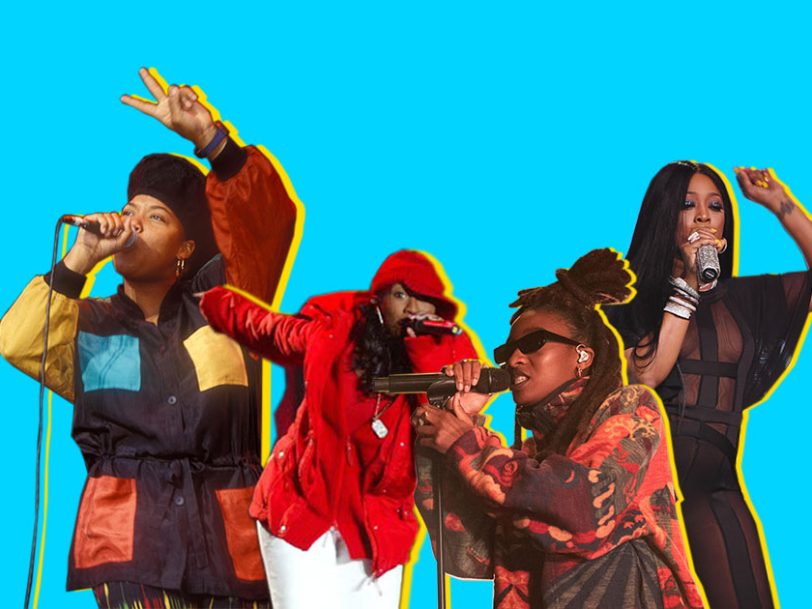When it comes to skill and spirit, gender in hip-hop absolutely makes no difference. While most of the artists on this list of the best female rappers of all time have explicitly or implicitly expressed solidarity with their sisters and foremothers in the rap game, they would also likely reject the tag of “female rapper”. As Little Simz said in 2016: “Why does it always have to be about my gender? Why can’t I just do what I want freely without feeling like people are trying to put me in a box all the time? Do you know how annoying that is?”
However – and very unfortunately – “rapper” is still too often seen as being synonymous with “male” (and sometimes with machismo). How many “best rappers” lists only contain one woman? This all serves to prevent women and trans or non-binary rappers getting their due credit.
Back in the year 2000, an independent film was released called Nobody Knows My Name. Made by filmmaker Rachel Raimist, it was about women in hip-hop – the female rappers, turntablists, organisers and B-girls who struggled to be heard and seen. The women of Nobody Knows My Name (including independent rappers Medusa and T-Love) were disheartened by the enormous barriers they had to overcome if they wanted to be recognised as females in hip-hop – including the expectation to be highly sexualised in order to gain attention. Sadly, the first two decades of hip-hop are littered with stories like these, of deeply unfair treatment – from shelved albums to rigged rap contests.
In the past 20 years, things have undoubtably improved in terms of industry sexism. The diversity of styles, subject matter, flows, subgenres and characters of those in this list of the best female rappers – along with how successful they have been – proves the dial has shifted. Here, then, is a celebration of what these artists have achieved, and an invitation to dig deeper into their catalogues.
Listen to the Hip-Hop At Fifty: The Past, Present, Future Is Female playlist here, and check out our best female rappers, below.
20: Trina (1978- present)
The defiant Katrina “Trina” Laverne Taylor was born and raised in Miami, Florida. She was working as a real-estate agent when she made her rap debut in 1998, guesting on a Trick Daddy track, and it kicked off her controversial career. Along with Foxy Brown and the legendary Lil’ Kim, Trina was part of a wave of women unafraid to express their sexual desires and disappointments in verse, putting forward an openly female perspective on modern relationships. “My mom opened a beauty salon, so I grew up around women,” Trina said in 2022, revealing her inspirations. “That’s all I saw, all day, every day, girls getting their hair done. At the hair salon, you heard it all. So, when it comes to women, I’ve always come up in that uplifting environment.”
Must hear: Da Baddest Bitch




